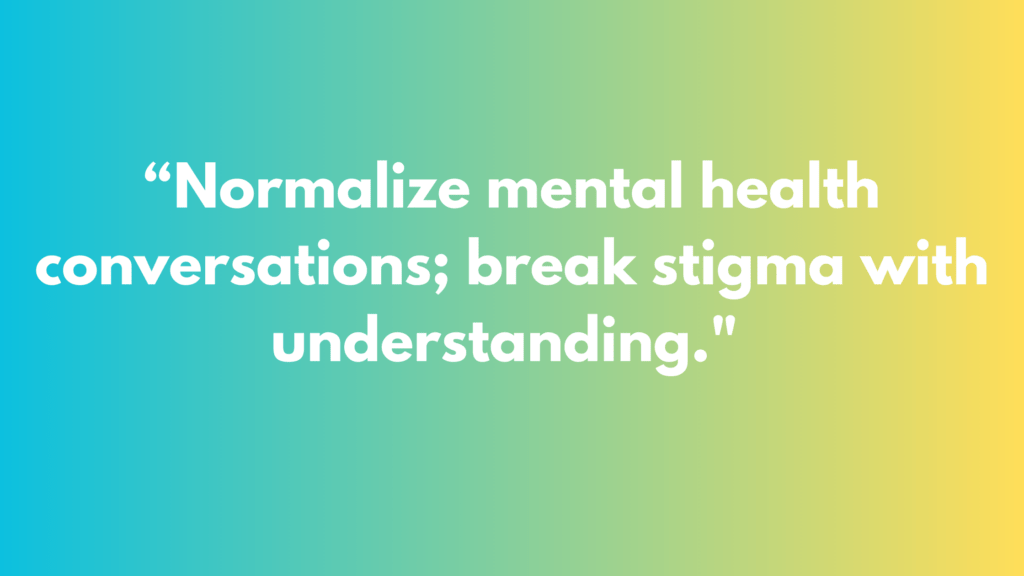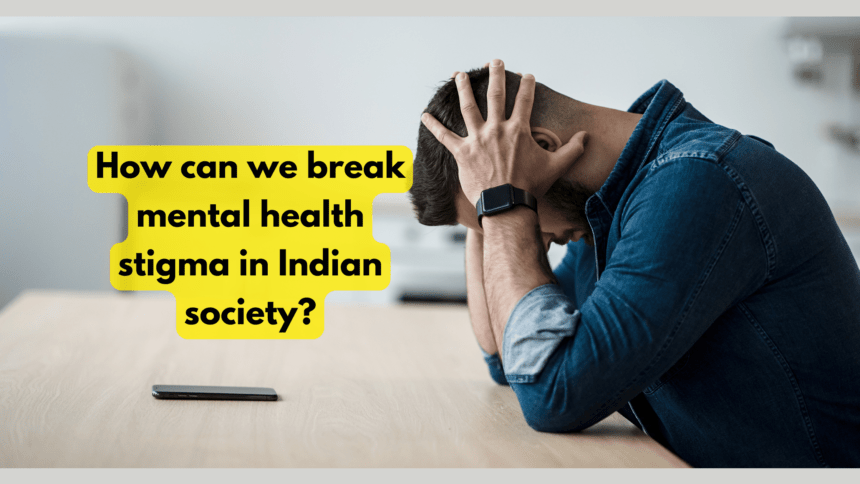Introduction
Understanding Mental Health
Mental health encompasses our emotional, psychological, and social well-being. It affects how we think, feel, and act, influencing our ability to handle stress, relate to others, and make choices. Recognizing the importance of mental health is crucial for fostering a society that values the well-being of all its members.
Importance of Mental Health Awareness

Raising awareness about mental health is imperative. It encourages people to seek help when needed, supports early intervention, and promotes the development of a compassionate society. Without awareness, stigma and ignorance persist, preventing individuals from receiving the care they deserve.
Historical Perspective
Ancient Views on Mental Health
In ancient India, mental health was often intertwined with spirituality and traditional healing practices. Ayurvedic texts like the Charaka Samhita described mental disorders and suggested holistic treatments. However, these views were largely limited to the elite, with common people often attributing mental illnesses to supernatural forces.
Evolution of Mental Health Understanding in India
Over time, the understanding of mental health in India has evolved. The colonial period introduced Western psychiatric practices, but access remained limited. Post-independence, efforts to integrate mental health into general healthcare have been ongoing, yet challenges persist.
The Current Landscape
Prevalence of Mental Health Issues in India
Mental health issues are alarmingly prevalent in India. According to the National Mental Health Survey, approximately 10% of the population suffers from mental health disorders, with depression and anxiety being the most common. Despite these numbers, mental health remains a low priority in healthcare policies.
Common Mental Health Disorders
Depression, anxiety, bipolar disorder, and schizophrenia are among the most common mental health disorders in India. Substance abuse also poses significant challenges, often exacerbating existing mental health conditions.
Cultural Influences
Societal Norms and Mental Health Perceptions

Indian society is deeply influenced by traditional values and norms. Mental health issues are often seen as a sign of weakness or a source of shame, leading to denial and avoidance. These societal pressures hinder open discussions and support for mental health.
Role of Religion and Spirituality
Religion and spirituality play a significant role in shaping attitudes towards mental health. While they can offer support and solace, they can also perpetuate stigmas, with some attributing mental health issues to karma or divine punishment.
The Stigma Surrounding Mental Health
Misconceptions and Myths
Misconceptions about mental health abound in Indian society. Many believe that mental illnesses are incurable or that individuals with mental health issues are violent. Such myths contribute to fear and discrimination.
Impact of Stigma on Individuals
The stigma associated with mental health issues can be devastating. It discourages people from seeking help, leads to social isolation, and exacerbates symptoms. This stigma also affects the families of those with mental health conditions, leading to further marginalization.
Barriers to Mental Health Care
Lack of Awareness
A significant barrier to mental health care in India is the lack of awareness. Many people do not recognize the symptoms of mental health issues or understand the importance of seeking professional help.
Limited Access to Professional Help
Access to mental health care is severely limited, particularly in rural areas. There is a shortage of mental health professionals, and many regions lack basic facilities for diagnosis and treatment.
Financial Constraints
Economic factors also play a crucial role. Mental health care can be expensive, and many people cannot afford treatment. This financial burden further deters individuals from seeking necessary care.
The Role of Education
Incorporating Mental Health in School Curricula
Introducing mental health education in schools can be a game-changer. It can help children understand and manage their emotions, reduce stigma from an early age, and promote a culture of empathy and support.
Educating Parents and Guardians
Parents and guardians play a vital role in a child’s mental health. Educating them about mental health issues can help in early identification and intervention, providing a supportive environment for the child.
The Influence of Media
Media Representation of Mental Health
Media has a powerful influence on public perceptions. Accurate and sensitive representation of mental health issues can educate the public, dispel myths, and encourage people to seek help.
Social Media’s Role in Mental Health Awareness
Social media platforms have become vital tools for mental health awareness. They provide spaces for individuals to share their stories, offer support, and access information. However, they can also perpetuate misinformation and unrealistic standards.
Government Initiatives
National Mental Health Program
The National Mental Health Program (NMHP) was launched to address the mental health needs of the population. It aims to integrate mental health services into general healthcare and improve access to treatment.
Recent Policies and Their Impact
Recent policies, such as the Mental Healthcare Act of 2017, have made strides in protecting the rights of individuals with mental health issues. These policies aim to ensure better access to care and reduce stigma, but implementation remains a challenge.
The Role of NGOs
Prominent NGOs Working in Mental Health
Several NGOs are at the forefront of mental health advocacy in India. Organizations like Sangath, The Banyan, and The Live Love Laugh Foundation are making significant impacts through their programs and initiatives.
Success Stories and Case Studies
Success stories from these NGOs highlight the importance of community-based interventions. Case studies demonstrate how targeted efforts can lead to meaningful changes in individuals’ lives and communities.
The Importance of Community Support
Building Support Networks
Community support networks are essential for mental health recovery. They provide a sense of belonging, reduce isolation, and offer practical assistance to individuals and families.
Community-Based Programs
Programs that engage the community in mental health initiatives can be highly effective. They empower individuals, promote inclusivity, and ensure that support is available where it is most needed.
The Workplace and Mental Health
Mental Health Policies in the Workplace
Workplaces play a crucial role in mental health. Implementing mental health policies, providing resources, and fostering a supportive environment can significantly improve employees’ well-being.
Corporate Initiatives and Programs
Many companies are now recognizing the importance of mental health. Corporate initiatives, such as employee assistance programs and mental health workshops, are becoming more common and are helping to reduce stigma in the workplace.
Technological Innovations
Telemedicine and Online Counseling
Telemedicine and online counseling have revolutionized access to mental health care. They provide convenient, confidential, and affordable options for individuals seeking help.
Mental Health Apps and Platforms
Mental health apps and platforms offer tools for managing stress, anxiety, and other issues. They can provide immediate support and resources, making mental health care more accessible to a broader audience.
Personal Stories
Narratives from Individuals Battling Stigma
Personal stories are powerful tools in the fight against stigma. They humanize mental health issues, provide hope, and encourage others to seek help and share their own experiences.
The Power of Sharing Experiences
Sharing experiences can create a ripple effect. When individuals speak out about their mental health journeys, it fosters a sense of community and solidarity, helping to break down barriers and reduce stigma.
Moving Forward
Steps to Break the Stigma
Breaking the stigma requires a multifaceted approach. Education, open dialogue, supportive policies, and community engagement are all critical steps in changing societal attitudes towards mental health.
The Future of Mental Health in India
The future of mental health in India depends on sustained efforts to improve awareness, accessibility, and support. By addressing the barriers and promoting a culture of acceptance, we can pave the way for a healthier and more inclusive society.
Top 10 Books on Mental Health by Indian Authors You Must Read













